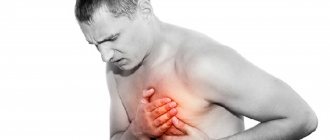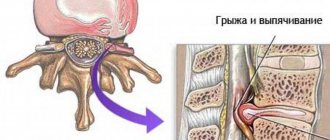Aversion to meat: main reasons and ways to overcome it
- Why past depression and illness can cause an aversion to meat
- When should you see a doctor?
- How to deal with an aversion to meat
Quite rare, but such a possible phenomenon as an aversion to meat becomes an obstacle for people who want to lose weight with the help of the Dukan diet.
The reasons for the appearance of such sensations can be very diverse: from the consequences of elementary poisoning to cancer. Therefore, understand this attitude towards meat products as quickly as possible in order to exclude serious illnesses. At the same time, we are not talking about vegetarians who consciously refuse animal food. The main reasons for aversion to protein foods include: recent poisoning;
- transferred other diseases;
- stress and depression;
- pregnancy;
- stomach or gastrointestinal cancer;
- lack of appetite due to one of the above reasons.
The most common reason for aversion to meat is pregnancy. If it is confirmed, then there is nothing to worry about; you should stop worrying and eat the foods that your body requires. All doctors are unanimous in the opinion that pregnant women should not deny themselves, but they should try to limit only the number of sweet and starchy foods, trying to diversify the diet as much as possible.
The human body from diseases and psychological problems is quite seriously depleted, weakened and requires restoration of energy. But proteins are not able to satisfy such a need, on the contrary: meat is much more difficult to digest than many carbohydrates, and therefore consumes even more of the already scarce vitality.
Therefore, most often, giving up meat occurs on a subconscious level, when a person is simply unable to overcome weakness and seeks to replenish his energy reserves with carbohydrates. Exhaustion will pass over time, but it is important at this stage not to overindulge in carbohydrate foods. You should not go to extremes and consume sweet desserts.
It is optimal to restore the body’s energy reserves with cereals, fruits, and herbs.
As a rule, discomfort occurs after eating heavy food, which includes meat. As a result, a person refuses food that causes such consequences. But with such symptoms, you need to urgently consult a doctor.
You should not delay your visit because an aversion to any foods and meat in particular can be a sign of stomach cancer.
Oncology causes many disturbances in the functioning of the body, so there is nothing strange in the fact that rejection of any product is a symptom of cancer. Other warning signs should also include:
- apathy and loss of appetite in general;
- increased sweating and weakness;
- general malaise without the ability to describe what exactly is wrong;
- sudden weight loss (this symptom should make you go to the doctor as soon as possible, since causeless weight loss is the most important symptom of cancer).
Anorexia is also a serious disorder - an extreme degree of weight loss, at which there is already a danger to life. Most doctors are confident that the cause of this condition is mental pathology, if other diseases are excluded.
Most people who are faced with such a problem usually do not see the need to deal with such feelings. Most often, subconscious refusal of a number of foods is perceived as a signal from the body that there is an excess of certain substances, the use of which should be limited.
During pregnancy, nervous exhaustion, weakness after illness, this is quite understandable and justified, although the diet in any case should be complete.
In this case, you can deal with disgust in your own way: do not eat meat and increase the amount of plant proteins consumed, because there are a lot of replacement options.
First of all, pregnant women should think about how to compensate for the lack of protein in their diet. Meat can be replaced with legumes, peas, buckwheat, nuts, sesame seeds, mushrooms and lentils. These products are rich in vegetable protein; their use in dishes and consumption in their pure form significantly reduces the risk of developing deficiency of iron and other microelements.
It should be noted that the lower the fat content of cheese and cottage cheese, the more suitable they are for compensating for protein deficiency due to the lack of meat in the diet. With a higher fat content, fermented milk products contain much less protein than our body needs. Of course, this is only true when we are talking about quality cheeses.
Perhaps, over time, the disgust will pass, if there are no serious underlying causes for its occurrence, and during this time you will be able to support the body’s need for proteins with the help of other products.
If the reluctance to eat meat persists for a long time, you should reconsider your attitude to the diet as a whole. Maybe it's time to become a vegetarian. But then don’t forget about the amount of plant proteins in your menu!
Throughout life, the human body, like any other creature, needs to receive vitamins and beneficial microelements. They help our body work fully when there is a shortage of any element, the body malfunctions and the person begins to get sick.
If it happens that you have a feeling of nausea from meat, then this can be considered an alarm bell. After all, it is the main source of protein, which is vital for the body. Let's look at the reasons why an aversion to meat may occur.
The appearance of an unpleasant feeling from meat is not a disease. It is worth considering this fact as a possible symptom signaling the presence of a disease. However, there is also a positive reason: nausea from meat may occur during pregnancy.
Don’t be alarmed; appetite often disappears due to psychological reasons (from stressful situations or depression), and people who are highly suggestible may, after talking with animal rights activists or watching a movie about animals, develop a feeling of nausea at the sight of it.
Let us consider in detail the possible causes of nausea from meat, which are caused by a malfunction in the body and the possible development of the disease.
Neurology
If problems arise with a person’s central nervous system, this can cause serious problems in the body. After all, the central nervous system is responsible for all the actions of the body, including all receptors. And often, if there are problems, you may develop an aversion to food or begin to feel sick from the smell of meat.
Any impact on nerve receptors causes a reaction in the body. They can all be figuratively divided into external and internal. The first to react to any external influences, for example:
- injuries;
- burns;
- fractures;
- other various effects on the body.
We suggest that you familiarize yourself with Water callus - what to do and how to treat it at home (medicines and folk remedies)
And internal receptors just react to changes associated with stress and mental illness. When problems arise at the emotional level, the nervous system is overloaded, and problems with the functioning of internal organs appear. This is what can cause nausea after eating meat.
Infections
Infectious diseases appear when neurotropic viruses enter the body and attack nerve branches or brain tissue in the body. Due to their defeat, problems arise with reflex areas. If the area responsible for the functioning of the gastrointestinal tract is damaged, its work is suspended and fails. This results in an unpleasant feeling and possible nausea and vomiting.
Gastrointestinal diseases
Improper functioning of the gastrointestinal tract can affect the normal acceptance and digestion of various foods. Along with loss of appetite, additional symptoms appear that cause discomfort:
- flatulence;
- the appearance of heartburn;
- feeling of nausea (vomiting);
- excessive heaviness in the stomach;
- unpleasant pain in the abdominal area.
All these indicators are general and indicate obvious stomach problems. But why does meat make you sick? This feeling is caused by improper functioning of the pancreas.
It produces the necessary enzyme that helps break down the proteins contained in meat - amylase.
That is why any diseases associated with a deterioration in the functioning of the gland can cause an aversion to any type of meat. You can make a list of reasons why hostility arises:
- chronic pancreatitis;
- gastritis in any manifestations;
- diseases associated with poor outflow of bile juice;
- inflammatory diseases that interfere with intestinal secretion.
It is worth noting that it is always difficult for the stomach to digest fatty meats, so it is recommended to consume them as rarely as possible, especially when fried. Excessive load will not have a positive effect on his work.
It is better to be vigilant about your health, because there are cases when the first symptoms of the development of the disease are missed, and they turn to a doctor for examination when more severe symptoms appear.
If you cannot eat meat, then this may be a wake-up call to the presence of cancer. Surprisingly, if it is present, our stomach is not ready to accept meat. Added to this symptom are:
- appetite begins to disappear;
- a state of apathy appears;
- excessive weakness;
- sweat production increases;
- weight begins to drop sharply.
A sharp weight loss occurs in the presence of any disease; in other cases, even a diet will not give such a result. Therefore, the first call for a quick examination is sudden weight loss.
Disgust appears due to the growth of tumors in the body, which affect the normal functioning of the body. Intoxication occurs and the patient develops anemia; with these signs, a deterioration in the proper digestion process appears.
However, it is worth remembering that when such symptoms appear, it does not mean that you definitely have cancer. The disease does not always follow the same scenario; you just need to monitor your body and undergo periodic preventive examinations.
Depression and stress
Doctors' advice
How to eat if you have an aversion to meat? After all, complete refusal of this product can lead to protein deficiency in the body.
If the aversion to eating meat is associated with a disease, then it is necessary to cure the underlying pathology. For malignant tumors and inflammation in the gastrointestinal tract, doctors prescribe special diets that limit heavy foods.
Meat is not the only source of protein. This product can be replaced with the following types of food:
- legumes;
- chicken or quail eggs;
- dishes made from rice and buckwheat;
- mushrooms;
- nuts;
- sesame seeds.
These products contain plant proteins that are no less beneficial than animal protein. Such food is easier to digest and absorb by the body than meat.
Dairy products also contain protein - casein. If you have an aversion to meat, it is recommended to eat low-fat cottage cheese, yogurt, cheeses, fermented baked milk, and kefir. It is also useful to include fish and eggs in your diet. This will help enrich the body with proteins.
An aversion to meat is often accompanied by a complete loss of appetite. This is observed in pregnant women with toxicosis, as well as in patients with infectious and gastric diseases.
However, fasting is strictly contraindicated. Refusal to eat will only lead to further weakening of the body. If you have poor appetite and nausea, it is recommended to eat light food, and then gradually introduce dietary meats in small quantities into your diet.
Oncology causes many disturbances in the functioning of the body, so there is nothing strange in the fact that rejection of any product is a symptom of cancer. Other warning signs should also include:
- apathy and loss of appetite in general;
- increased sweating and weakness;
- general malaise without the ability to describe what exactly is wrong;
- sudden weight loss (this symptom should make you go to the doctor as soon as possible, since causeless weight loss is the most important symptom of cancer).
Anorexia is also a serious disorder - an extreme degree of weight loss, at which there is already a danger to life. Most doctors are confident that the cause of this condition is mental pathology, if other diseases are excluded.
Depressive and stressful conditions
Depression and stress can cause aversion to meat. During psycho-emotional stress, a person loses a lot of strength. As a result, the body simply does not have energy left to process animal protein.
Very often, a person during nervous tension cannot eat meat, but at the same time leans on sweets and flour. In this case, they say that the patient “eats stress.” At a subconscious level, a person experiences an increased need for carbohydrate foods. Thus, the body tries to compensate for the protein deficiency.
However, during times of stress, it is not recommended to consume large amounts of simple carbohydrates, which are found in sweets and baked goods. This will only lead to excess weight gain. When stressed, it is useful to eat foods rich in complex carbohydrates: vegetables, fruits, cereals, legumes, nuts. This will help restore the body's strength, and over time, the aversion to meat food will disappear.
Why does disgust occur?
One day a man notices that he suddenly has an aversion to meat. What does it mean? Most often, this indicates that the body is very weakened. Meat food is a rather heavy type of food; animal protein is difficult to digest. The body spends a lot of energy and effort on assimilation and processing of meat. Therefore, when a person is sick or weakened, he develops a physiological aversion to animal protein.
View gallery
Infectious diseases
Often a person cannot eat animal food due to infectious diseases. The cause of aversion to meat is intoxication of the body with waste products of microorganisms. At the same time, the patient’s well-being deteriorates greatly. Infections are often accompanied by high fever, nausea, and vomiting. As a result, a person loses his appetite and feels aversion to heavy meat foods.
In such cases, the patient should not be forced to eat a piece of meat. If the temperature is high and the patient is not feeling well, you can feed only light food. It is useful to consume weak broths, vegetable and fruit purees, and liquid dairy products. Such food compensates for protein deficiency in the body and strengthens the immune system. The aversion to meat foods goes away after the general condition improves or complete recovery.
Pathologies of the gastrointestinal tract and liver
The cause of aversion to meat is very often diseases of the digestive system. These pathologies always negatively affect a person’s appetite. Aversion to meat food is accompanied by the following symptoms:
- nausea;
- vomiting;
- feeling of heaviness and pain in the abdomen;
- heartburn.
Manifestations of gastrointestinal pathologies usually intensify after eating heavy food, including meat. Inflamed digestive organs cannot process such food. The result is abdominal pain and nausea.
The following diseases can cause an aversion to meat:
- gastritis;
- ulcerative lesions of the gastrointestinal tract;
- cholecystitis;
- pancreatitis;
- cholelithiasis.
Due to pain and other unpleasant sensations, a person begins to avoid eating meat. However, a vegetarian diet does not cure the underlying disease. For gastrointestinal and liver pathologies, it is necessary to undergo diagnostics and a course of therapy. After the condition improves, the patient can eat dietary meats: chicken, turkey, rabbit. Eating fatty beef and pork should be completely avoided.
What causes symptoms such as: aversion to food or drink
Below are diseases that match your symptoms.
Botulism
Botulism is a progressive acute disease caused by the bacteria Clostridium botulinum, which produces botulinum toxin, a special natural poison.
Read more- poor appetite
- dyspnea
- speech disorder
- bloating
- rapid pulse
- swallowing disorder
- abdominal pain
- constipation
- dizziness
- blurred vision
- vomit
- weak muscles
- weak pulse
- fatigue
- xerostomia
- aversion to food or drink
- pale skin
- salivation
- drooping eyelids
- irritability
- labored breathing
- lethargy
- loss of muscle function
- blurry vision
- lack of appetite
- pain
- weakness
- nausea
- thirst
- muscle weakness
- difficulty swallowing
- paralysis
- dry mouth
- difficulty speaking
Brucellosis
Brucellosis is an infectious disease that is accompanied by damage to the body systems: nervous, reproductive, musculoskeletal system and others.
The disease is a type of zoonotic disease, that is, infection occurs from animals. Read more- poor appetite
- fever
- rash
- swollen lymph nodes
- abdominal pain
- constipation
- fatigue
- weight loss
- aversion to food or drink
- back pain
- bone pain
- chills
- hot skin
- headache
- joint pain
- fatigue
- lethargy
- liver enlargement
- myalgia
- lack of appetite
- pain
- weakness
- thirst
- elevated temperature
- sweating
- muscle pain
- enlarged spleen
- mood swings
Pancreas cancer
Pancreatic cancer is a relatively rare disease, but the number of patients with this pathology is growing.
A malignant neoplasm originates from the epithelium of an organ. Read more- pale stool
- poor appetite
- stomach ache
- itchy skin
- swollen stomach
- abdominal pain
- dark urine
- vomit
- watery stool
- fatigue
- weight loss
- yellow eyes
- aversion to food or drink
- back pain
- depression
- fluid in the abdominal cavity
- indigestion
- jaundice
- fatigue
- lump in the stomach area
- lack of appetite
- pain
- thirst
- diarrhea
- frequent urination
- trembling hands
- heartburn
- pain in the upper abdomen
Chickenpox
Chickenpox (varicella) is an acute infectious disease that occurs as a result of exposure to a herpes virus and is characterized by the presence of a maculopapular rash.
Read more- papules
- poor appetite
- acne
- fever
- raised pimples
- skin lesion
- rash
- abdominal pain
- vesicles
- aversion to food or drink
- cough
- hot skin
- headache
- joint pain
- bad feeling
- lack of appetite
- pain
- weakness
Crohn's disease
Crohn's disease is a chronic bowel disease that causes inflammation of the gastrointestinal tract.
Read more- poor appetite
- fever
- rectal bleeding
- rash
- bloating
- night sweats
- tarry stool
- tenesmus
- abdominal pain
- fecal incontinence
- constipation
- blurred vision
- vomit
- watery stool
- fatigue
- weight loss
- aversion to food or drink
- chronic pain
- hot skin
- smelly stool
- gastrointestinal bleeding
- joint pain
- fatigue
- lump in the stomach area
- milk intolerance
- mouth ulcers
- lack of appetite
- pain
- weakness
- diarrhea
- elevated temperature
- blood in stool
Colitis
Colitis is an inflammatory disease of the colon mucosa.
Men aged 40-60 years and women aged 20-60 are most often affected. Read more- rectal bleeding
- shock
- bloating
- night sweats
- tarry stool
- tenesmus
- abdominal pain
- vomit
- watery stool
- fatigue
- weight loss
- aversion to food or drink
- chronic pain
- dehydration
- gastrointestinal bleeding
- fatigue
- pain
- weakness
- nausea
- diarrhea
- coating on the tongue
- blood in stool
Intestinal obstruction
Intestinal obstruction, also called ileus, is a condition when the passage of intestinal contents (chyme) along the tract from the stomach to the anus is impaired.
Intestinal obstruction is not considered as a separate disease: this pathology is a complication of a variety of abdominal diseases. Read more- poor appetite
- stomach ache
- smell from the mouth
- bloating
- swollen stomach
- abdominal pain
- fecal incontinence
- constipation
- vomit
- watery stool
- aversion to food or drink
- chronic pain
- belching
- irritability
- lump in the stomach area
- pain
- nausea
- diarrhea
Anorexia
Anorexia nervosa is an eating disorder characterized by significantly reduced body weight, deliberately caused and/or maintained by the patient himself, for the purpose of losing weight or preventing excess weight gain.
Most often found in girls. Read more- poor appetite
- sensitivity to cold
- insomnia
- slow pulse
- bloating
- fainting
- dental caries
- abdominal pain
- constipation
- dizziness
- fatigue
- weight loss
- woozy
- aversion to food or drink
- dehydration
- depression
- dry hair
- dry skin
- headache
- hypothermia
- heart rhythm disturbances
- irritability
- lethargy
- hair loss
- low blood pressure
- muscle atony
- lack of appetite
- chronic fatigue
Amphetamine addiction
Amphetamines are a whole group of amines that have an extremely powerful stimulating effect on the human central nervous system (CNS).
- problem behavior
- fever
- seizures
- drowsiness
- tachycardia
- suicide threat
- restlessness
- loss of consciousness
- aggressiveness
- ataxia
- aversion to food or drink
- coma
- hot skin
- generalized tonic-clonic seizure
- high blood pressure
- heart rhythm disturbances
- visual hallucinations
- auditory hallucinations
Acute mountain sickness
Mountain sickness is a painful condition of the human body that has risen to a significant altitude above sea level, which occurs as a result of hypoxia (insufficient supply of oxygen to tissues), hypocapnia (lack of carbon dioxide in tissues) and is manifested by significant changes in all organs and systems of the human body.
- peripheral cyanosis
- poor coordination of movements
- poor appetite
- seizures
- Strong headache
- shortness of breath on exertion
- stomach ache
- insomnia
- dyspnea
- drowsiness
- tachycardia
- dizziness
- blurred vision
- vomit
- fatigue
- woozy
- aversion to food or drink
- pale skin
- bloody sputum
- cough
- decreased attention
- cyanosis of the finger
- headache
- hemoptysis
- heart rhythm disturbances
- irritability
- fatigue
- cyanosis of lips
- apathy
- confusion
- lack of appetite
- disorientation
- nausea
- cardiopalmus
- muscle pain
Acute Pancreatitis
Acute pancreatitis is an acute demarcation inflammation of the pancreas, accompanied by necrosis of pancreatocytes followed by tissue necrosis, dystrophy and secondary purulent infection.
Read more- pale stool
- fever
- stomach ache
- hiccups
- itchy skin
- bloating
- rapid pulse
- swollen stomach
- tachycardia
- abdominal pain
- dark urine
- vomit
- yellow eyes
- anxiety
- aversion to food or drink
- back pain
- chills
- dehydration
- belching
- hot skin
- nervousness
- headache
- indigestion
- heart rhythm disturbances
- jaundice
- low blood pressure
- lack of appetite
- pain
- weakness
- nausea
- diarrhea
- elevated temperature
- sweating
- body aches
- heartburn
Cirrhosis
Cirrhosis is severe scarring and poor functioning of the liver caused by long-term exposure to toxins such as alcohol or viral infections.
- pale stool
- poor appetite
- rectal bleeding
- impotence
- stomach ache
- itchy skin
- swelling due to excess fluid
- swollen ankle
- swollen stomach
- swelling
- abdominal pain
- dark urine
- vomit
- vomiting blood
- dark vomit
- fatigue
- weight loss
- yellow eyes
- aversion to food or drink
- short erection
- fluid in the abdominal cavity
- bleeding gums
- gastrointestinal bleeding
- breast hypertrophy in men
- indigestion
- jaundice
- fatigue
- liver enlargement
- confusion
- nosebleed
- lack of appetite
- oliguria
- pain
- weakness
- swelling of the legs
Addison's disease
Addison's disease occurs when the adrenal cortex is damaged and the adrenal glands do not produce enough steroid hormones cortisol and aldosterone.
Read more- impotence
- stomach ache
- colorless skin
- retardation of movements
- fainting
- tachycardia
- abdominal pain
- loss of consciousness
- vitiligo
- vomit
- watery stool
- fatigue
- weight loss
- aversion to food or drink
- pale skin
- dehydration
- dizziness when standing up
- dry skin
- increased skin pigmentation
- heart rhythm disturbances
- irritability
- fatigue
- hair loss
- low blood pressure
- lack of appetite
- numbness of the limbs
- nausea
- muscle weakness
- diarrhea
- elevated temperature
Colorectal cancer
Colorectal cancer (CRC) is the medical definition of a malignant tumor of the mucous membrane of the colon (colon) or rectum (rectum).
Colon cancer or colon tumor is a dangerous disease that requires serious comprehensive treatment. Read more- rectal bleeding
- stomach ache
- swollen stomach
- tarry stool
- abdominal pain
- constipation
- vomit
- watery stool
- fatigue
- weight loss
- anemia
- aversion to food or drink
- pale skin
- gastrointestinal bleeding
- fatigue
- lump in the stomach area
- pain
- weakness
- diarrhea
- blood in stool
- colic
Esophageal carcinoma
Esophageal cancer is an oncological disease of the esophagus, making up a significant part of all diseases of this organ.
The main symptoms of this disease are: progressive difficulty swallowing (first solid food, then liquid) and unintentional weight loss. Read more- poor appetite
- hoarse voice
- stomach ache
- hiccups
- smell from the mouth
- acidity in the stomach
- swallowing disorder
- tarry stool
- a sore throat
- abdominal pain
- vomit
- vomiting blood
- dark vomit
- fatigue
- weight loss
- aversion to food or drink
- back pain
- pale skin
- chest pain
- cough
- belching
- hemoptysis
- gastrointestinal bleeding
- indigestion
- lack of appetite
- pain when swallowing
- weakness
- elevated temperature
- sweating
- coating on the tongue
- heartburn
- dark chair
- chronic cough
Maple syrup disease (MSUD)
Maple syrup disease (MSUD) is a metabolic disorder in which the body is unable to break down certain amino acids.
- poor appetite
- seizures
- stomach ache
- loss of consciousness
- strange smell of urine
- vomit
- weight loss
- aversion to food or drink
- coma
- irritability
- lethargy
- spasm
Amoebiasis
Amebiasis is a protozoal disease characterized by ulcerative lesions of the large intestine, the occurrence of abscesses in various organs and a tendency to become chronic.
The pathological and clinical picture is similar to bacterial dysentery, therefore this pathology is often called amoebic dysentery. Read more- poor appetite
- fever
- rectal bleeding
- stomach ache
- bloating
- abdominal pain
- constipation
- vomit
- watery stool
- fatigue
- weight loss
- abdominal tenderness
- anemia
- aversion to food or drink
- pale skin
- dehydration
- hot skin
- gastrointestinal bleeding
- fatigue
- weakness
- nausea
- muscle weakness
- diarrhea
- elevated temperature
- coating on the tongue
- lower abdominal pain
- blood in stool
- mucus in stool
Atrophic gastritis
Atrophic gastritis is a disease of the stomach characterized by thinning of its mucous membrane and a reduction in the number of functioning cells in it.
Read more- poor appetite
- stomach ache
- bloating
- weight loss
- anemia
- pale skin
- belching
- fast saturation
- lethargy
- hair loss
- weakness
- nausea
- sweating
- aching pain in the stomach area
- pain after eating
- coating on the tongue
- heartburn
- white coating on tongue
- metallic taste in mouth
Caries
Caries is a hole that forms in a tooth.
Cavities start small and gradually become larger if left untreated. Read more- smell from the mouth
- swollen face
- swollen gums
- toothache
- bleeding gums
- pain when eating
Duodenal ulcer
Duodenal ulcer is a chronic and recurrent disease, which is a defect in the intestinal mucosa, the healing processes of which are disrupted or significantly slowed down.
Duodenal ulcers are 4 times more common than gastric ulcers. Read more- stomach ache
- bloating
- abdominal pain
- constipation
- vomiting blood
- fatigue
- belching
- weakness
- nausea
- aching pain in the stomach area
- sharp pain in the stomach area
- pain after eating
- blood in stool
- increased appetite
- heartburn
- pain in the upper abdomen
- aching pain in the abdomen
Never rely solely on search results to make a diagnosis. Be sure to consult a board-certified physician for diagnosis and treatment.
Pregnancy
There are many folk signs associated with an aversion to meat during pregnancy. “Who will be born - a boy or a girl?” - this question is often asked by expectant mothers who feel nauseated from eating meat. However, aversion to animal protein does not in any way indicate the gender of the unborn child. It's just a superstition.
Aversion to meat during pregnancy usually occurs in the first trimester. During this period, a woman’s taste preferences change greatly. The patient may have a strong desire to eat certain types of foods (for example, pickles or sweets), and feel a physical aversion to meat. Doctors consider this to be normal.
We suggest you familiarize yourself with the causes of cracking skin on the feet
Thus, the body tells the woman what types of food she needs. Experts advise patients to follow their taste preferences during pregnancy.
There are times when an expectant mother feels nauseous even from the mere smell of a meat dish. There is no need to force yourself to eat food that causes aversion. However, it is important to remember that meat is a source of protein, which is necessary for the development of the fetus. You cannot completely deprive your body of this beneficial substance. When giving up meat, it is necessary to compensate for the protein deficiency by eating fish, dairy products, eggs or mushrooms. These types of foods also contain proteins.
Why is it a problem during pregnancy?
Aversion to meat is a symptom of what disease? With different diseases, the feeling of disgust can be expressed in different ways. And sometimes these small differences can be used to more accurately determine what disease is lurking in the body. And using these signs, you can quickly find the causes of the disease.
It is possible to develop an aversion to meat during pregnancy. During this period, there is an aversion to many dishes and even to the most favorite ones. A pregnant woman can vomit not only from the sight of raw meat, but also from the smell of fried chicken. This usually manifests itself as vomiting. But this period does not last long. And it is caused by the fact that the body itself chooses which nutrients it needs most now. There are no additional symptoms (for example, abdominal pain). If there are other signs and the dislike for meat lasts more than a week, then it is better to consult a therapist.
Oncological diseases
Patients with cancer often develop an aversion to meat. Why is this happening? Oncological diseases dramatically weaken the body, and it becomes difficult for the digestive system to process heavy meat foods. In addition, the patient's appetite sharply decreases. This condition is most often observed with malignant tumors in the gastrointestinal tract.
An aversion to meat in cancer is one of the early signs of pathology. In this case, other symptoms of the initial stage of the disease are observed:
- sudden weight loss;
- weakness and high fatigue;
- sweating;
- frequent ailments.
If an aversion to meat food is accompanied by sudden and causeless weight loss, then you must immediately consult an oncologist and undergo diagnostics. This may be an early sign of cancer. It is important to remember that cancer can be completely cured only in the initial stages.
Oncology and meat abstinence
There is an aversion to meat in cancer patients. In this case, in addition, the patient notes malaise, fever, headaches, and weight loss. The symptom does not go away on its own. Disgust is especially pronounced if the tumor is located in the digestive tract. Consultation with a therapist is simply necessary for these symptoms.
View gallery
Animal protein intolerance
In which disease is aversion to meat observed from early childhood? This symptom is observed in people with congenital intolerance to animal protein. This pathology is one of the types of food allergies.
When you are allergic to meat, the human body rejects the protein albumin found in the muscles of animals. Meat intolerance is usually hereditary. Hypersensitivity to albumin is often combined with allergies to egg whites and animal dander.
After eating meat, a person with an allergy first experiences dyspeptic symptoms: flatulence, nausea, heartburn. Then red spots on the skin and itching appear. In severe cases, Quincke's edema and anaphylactic shock are observed.
Patients suffer from vitamin deficiency and lack of proteins in the body. Many patients are underweight.
If you have a food allergy, you must take antihistamines. Doctors recommend limiting the consumption of foods with animal protein. However, you should not completely give up meat. To avoid an allergic reaction, it is necessary to prepare the product correctly. The meat must be boiled very thoroughly and for a long time, draining the broth several times. This will help remove allergens.








